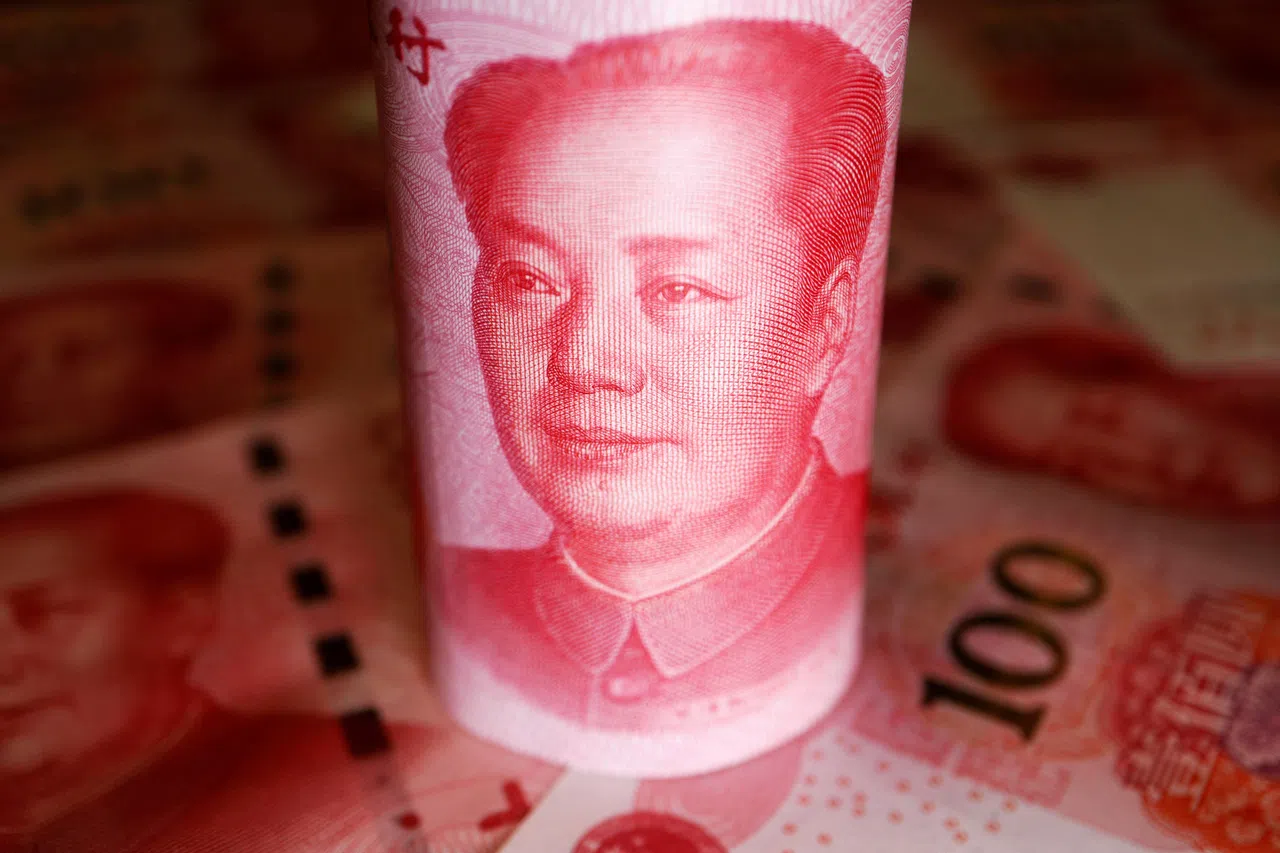CHINA reaffirmed its support for the yuan after allowing the currency to slip below a key support level in the last session.
The People’s Bank of China (PBOC) set its daily reference rate stronger than the closely watched line of 7.2 per US dollar. That helped ease concern that Beijing will allow a sharper depreciation, after the onshore yuan slid past 7.3 per US dollar due to mounting economic pressures and a widening yield gap with the US.
In a subtler sign of support, a PBOC-backed newspaper wrote in a commentary on Monday (Jan 6) that the central bank showed a clearer and stronger resolution to stabilise the yuan in a statement released late last week. Beijing is also planning to sell more bills in Hong Kong, according to local media Yicai, a move that can mop up yuan liquidity and boost the currency against the US dollar.
“PBOC squashed doubts that it has dropped its support for the yuan after US dollar-yuan weakened past 7.3 last week,” said Alex Loo, a macro strategist at TD Securities in Singapore. The news report “further reinforces PBOC’s resolve to defend the yuan. Markets may stay more cautious on shorting the yuan aggressively ahead of Donald Trump’s inauguration”.
The PBOC has been holding the so-called fixing stronger than 7.2 per US dollar to blunt the impact of a stronger dollar following Trump’s victory in the US election. The daily reference rate, which limits moves in the onshore yuan by 2 per cent on either side, is the PBOC’s most frequently used tool to manage the currency.
In a statement released late Friday after its monetary policy meeting, the PBOC said it will strengthen the management of currency trading and resolutely crack down on behaviours that disrupt the market. It will prevent the building of one-sided bets and overshoot in the exchange rate, the PBOC said.
BT in your inbox
Start and end each day with the latest news stories and analyses delivered straight to your inbox.
State-owned banks were seen selling US dollars in the onshore market to meet demand for the greenback on Monday, traders said. However, the lenders were not supporting the yuan at a fixed level, said traders, who asked not to be named commenting on the FX market.
Bearish bets
Some banks are still bearish bets on the currency. Goldman Sachs expects the onshore yuan to weaken to 7.40 per US dollar in three months before declining further to 7.50 in six to 12 months. Strategists at BNP Paribas sees the yuan falling to 7.45 by year-end, while Nomura forecast in December the currency may drop to 7.6 in overseas trading by May.
The offshore yuan gained 0.1 per cent while the onshore yuan was on track for a second session of declines.
On top of a sluggish economy, the yuan is also pressured by potential escalation of trade tensions with the US and signs of capital outflows. China already suffered the biggest outflow on record from its financial markets in November.
In addition to the fixing, other tools at PBOC’s disposal include mopping up yuan liquidity in offshore trading and direct intervention in the FX market.
“Anchoring the yuan sentiment seems key at this point,” said Fiona Lim, a senior strategist at Maybank. “There is little benefit in allowing the yuan to weaken too much right now,” she said adding that “How the PBOC wants to react to any curve-balls for the rest of the year could be another question.” BLOOMBERG



